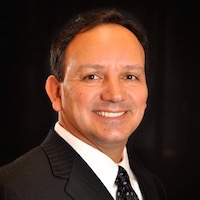All posts by Diane
The Super Simple Secret to Outwitting Overwhelm
Not all that long ago, I went through a period where I felt overwhelmed and stuck. Beneath my frustration was curiosity about where it was coming from and what was the best way to move beyond it.
One day, as I was watching my young son do his homework, I had a fascinating and frustrating insight.
This kid is really smart. And his homework is just not that hard for him. He could finish it in the time it takes to make a peanut butter sandwich. But seconds after he would pull it from his backpack a whole new dynamic came into play. It was as though a huge brick wall suddenly erupted from the page and grew a hundred feet tall.
He’d sit and stare at his paper. He’d complain about all the work he had to do. He’d worry that he wouldn’t be able to do it right (or at all). And then he’d become completely fixated on any little thing that captured his attention. A bug. A drop of water on the counter. The way the numbers on the digital clock change with each minute. And hours could go by before he had even touched his pencil to paper.
After watching for a while, I heard myself telling him, “In the time it takes you to moan and complain about it, you could have it done! You can get through this easily – you are so smart!” But nothing I said was getting through.
And then I realized that my son was a mirror image of me when I get overwhelmed.
It’s not that what must get done is all that difficult.
It’s that my mind had a way of magnifying things several times their normal size so that it felt like I must tackle Mount Everest when in reality I only needed to take a little walk around the block. I told myself stories (sometimes consciously and other times unconsciously) about how hard things will be or how long they would take – especially things that were new to me.
And then I’d fall into my old, familiar pitfall of trying to make everything perfect. Before I even realized what was going on, I felt totally exhausted and depleted. And then I needed relief—even just doing something that’s easy—so I could check a box and feel like I had accomplished something, anything.
Once I realized where my son got it, I decided to stop trying to teach him and let him teach me.
In addition to showing me what was standing in my way, he reminded me that all the words in the world don’t make a difference when you are trying to teach someone to do something you have not yet mastered. Kids learn through action, not words. And so do adults.
I knew that to help my son (or anyone else for that matter) in even the smallest way, I had to get busy working on myself. And then a new question arose: how can I overcome a lifetime of perfectionistic patterns that keep me from doing what’s necessary to achieve my grandest visions and goals?
With that question at the top of my mind, I went for a run. As with just about any of my runs, the first few minutes were tough. I was tired and stiff. It wasn’t fun. But I just kept going. And then I fell into my zone. My legs felt lighter. My breathing evened out. My head started to clear. I was actually enjoying myself. I ran a little faster and a little harder. It felt good.
And then I had a second, equally powerful insight.
To break out of the perfectionism trap—to get out of overwhelm, to free myself from my own self-imposed prison—I simply needed to get into action. Even one tiny step toward my desired goal would help – though at first it may be uncomfortable, messy, and far from perfect. And then I could take another, and another and another, until l finally I reach my zone.
Over the last several months, I have found that the more diligence and effort I put into those first few steps, the more quickly I get through that “warm up” period and into a place where I can make some real headway – and even have some fun in the process.
So that’s my simple plan for getting and staying unstuck. And when I need a little more motivation and inspiration, I just go hang out with my son for awhile.
“Life is like riding a bicycle. To keep your balance, you must keep moving.” ~Albert Einstein
Overwhelm is just one of the many states that keep us from taking action toward our goals and visions and doing our best work. If you are interested in learning more about how to find your optimal zone of performance so that your work becomes less cumbersome and more enjoyable, check out The Pinocchio Principle Unleashed: The Real Leader’s Guide to Accessing the Freedom & Flow of Your Authentic Genius, kicking off the week of September 23rd.
This 13-week leadership development program will help you find and stay in your optimal zone of performance so that your work becomes less cumbersome and more enjoyable. It’s designed to help high achieving professionals get better results and make a bigger impact while enjoying their lives more – both on and off the job.
Registration will close soon. Save your seat today!
The Gift of Chaos (and How to Leverage It)
“Chaos often breeds life, when order breeds habit.”
~ Henry B. Adams
Like many of us, I grew up thinking that things happened in a linear way.
First this, then that. One building block upon another in a definite order. Cause and effect. But over the years, I’ve noticed that life isn’t always like that.
Often it seems life is a series of random events that don’t seem to make much sense.
But when you have a larger vision and experience that vision as though it has already happened, you can begin to see this apparent chaos in a whole different way. Often what we experience is a chain of seemingly disjointed events that are in reality very connected.
Think of watching a movie of a glass shattering, only in reverse motion.
Pieces fly together from all directions in a disjointed fashion and assemble into a perfect whole. Each piece is absolutely necessary, though, in and of itself, incomplete and inconceivably connected to a larger picture.
We will experience ups and downs and travel roads that deviate from what we anticipated.
Nevertheless, these seemingly divergent paths may in fact be prerequisite to experiencing the totality of our vision. At times the healing process entails pain, discomfort or other symptoms. While we may point to these as signs of illness, we could alternatively consider them evidence of our recovery.
Seasons will change, and so will we.
A phase of growth and expansion is often preceded by a period where things unexpectedly fall away. We can look at the void as a loss, or recognize it as the space necessary for new creations to take root and flourish.
We may not initially realize the significance or relevance of our chaotic experiences.
But in hindsight we often realize the importance of enduring specific challenges, setbacks, delays, or what felt like irrelevant nuisances. These obstacles give us a greater perspective on who we are, deeper appreciation for where we have been and where we are going, and compassion for others who have experiences similar to our own.
As we rise up to these little challenges, we find strength we didn’t know we had and realize we are far greater than we thought we were. And as leaders, we can help others appreciate and leverage their own chaos as well.
Appreciating the perfect order unfolding in our lives more of an art than a science.
Most of us never really take the time to recognize it. If you are interested in leveraging the seeming chaos in your own life and life’s work, I encourage you to consider enrolling for the fall session of The Pinocchio Principle Unleashed: The Real Leader’s Guide to Accessing the Freedom & Flow of Your Authentic Genius, kicking off the week of September 23rd.
The program is filling up – and it is a great group of people so far! Enrollment is limited – click the link to save your seat.
When the Road You’re On Isn’t Getting You Where You Really Want to Go
Have you ever achieved a goal that wasn’t as fulfilling as you thought it would be?
Maybe it was a target you wanted to meet, a possession you longed to acquire, or a promotion you were hoping to receive. You kept your eye on the ball and hunkered down to do whatever it took to get there. When obstacles presented themselves, you busted through them and may have felt as though you were repeatedly banging your head against a wall. “The reward for your exhaustion would be the sweet taste of victory in the end,” you may have told yourself.
I did. And when I got to the top of the hill I was climbing I realized the mountain I was scaling was not mine, but someone else’s.
What if it didn’t have to be that hard?
It’s not that we want to avoid hard work, which really does have its rewards. It’s about enjoying the journey a little more. And if we didn’t insist on having to blaze the trail in front of us, we might find that off in the distance a lovely path is being revealed – if only we would stop long enough to pay attention.
When I take on new clients, they are often in the same state I have often found myself in.
They have worked hard to get somewhere, but they know in their hearts there is something greater available to them. Perhaps they haven’t been getting the results they wanted, have been experiencing a great deal of stress or even burnout, or are just ready for a change. During times like these often the best thing we can do is not to speed up, but to slow down – way down.
If the path you’re running on isn’t getting you where you want to go, moving faster won’t do you any favors.
The best leaders are not those who have all the answers, but rather the best questions.
- What are the possibilities?
- What are the opportunities?
- How are we uniquely positioned to make the most of them?
- In what ways can we leverage our strengths to rise up to our challenges?
In asking such questions, these leaders bring to the surface answers, insights and knowledge people hold inside that allow great things to happen. Rather than imposing a vision on others, they allow it to develop collectively, with the knowledge that they can’t possibly see and accomplish everything singlehandedly.
Before these great leaders can do this for others, they must do it for themselves.
So I challenge you (and myself as well) to focus on asking the important questions and to be still long enough to hear the answers.
In Native American cultures, young adults are sent on vision quests.
These rituals involve sending the youth on a journey, packed with provisions that allow basic needs to be met. Instructions are simply to wander around and find a place that calls to them. Upon doing so, further direction is simply to sit and reflect. The belief behind this is that we do not necessarily need to actively find our vision. When we quiet ourselves and pay attention, our visions find us.
A vision quest doesn’t have to be all consuming.
In our complex society, few of us have the time to go wander around the desert and sit for indefinite periods of time. So we need to make the time in our busy schedules to connect the dots. This may be a few minutes here and there. You may find yourself repeatedly daydreaming about something, or playfully entertaining an idea or possibility that will not allow itself to be dismissed.
These are critical pieces of information that can be vital to our journeys.
Like pieces of a puzzle, they eventually come together to reveal a bigger picture. Pay attention to them, and do whatever is necessary to nurture and protect them. Capture these thoughts on paper or in your computer and add to them as new ideas continue to emerge. Some of these nuggets will become more valuable to you than others – like gold in the miner’s pan, they will begin to shine amongst the grains of sand.
Notice also the synchronicities that occur all around you that help make your visions real. These may be chance encounters with people uniquely connected or qualified to help you, valuable information that effortlessly comes your way, and little serendipities that allow you to feel as though you are in the flow of something bigger than yourself. Chances are, you will be.
Enjoy the ride!
If you are interested in additional strategies for helping you navigate a path aligned with who you truly are – one that leads to lasting freedom and fulfillment, I invite you to check out The Pinocchio Principle Unleashed: The Real Leader’s Guide to Accessing the Freedom & Flow of Your Authentic Genius. Registration for the fall session is now open!
This 13-week leadership development program is designed to help high achieving professionals bring out their very best performance in such a way that fills them up rather than depleting them – and allows them to make a bigger impact doing meaningful, inspiring work while leading others to do the same.
The program will kick off in late September and go through early December. Enrollment is limited, so save your seat as soon as you can.
Give Presence: 3 Steps for Creating the Gift That Everyone Needs Most
Can you recall the last time you felt totally and completely attended to?
Chances are it wasn’t when someone was giving you advice or telling you what to do. It may not have even been when someone was engaging in an activity on your behalf or watching you tear open a gift. And yet when we think of giving something to others our minds often immediately jump to what we can do, say or buy for someone. Many times, the best gift we can give someone is that of our presence.
But what exactly is presence?
The word present derives from the Latin past participle praesse meaning “to be before one”, from the roots pra – pre + esse – to be. I believe presence is a state of being that’s achieved when we are truly in the moment, allowing it to unfold without judging it, labeling it, or getting lost in our thoughts about what it means or what we believe should be happening next (or instead).
Presence allows us to cut through the clamor of our preoccupations, worries and fears so that our true selves can emerge. It is a gateway through which our intuition and inner wisdom enters and expresses itself. A moment of presence is a state of grace that can produce great insights that help us to truly learn from our experiences, make the most of our opportunities and rise up to our challenges in creative ways.
In these moments of presence, we know who we really are and what we are truly capable of.
Have you ever noticed that people tend to match each other’s intensity and tone when they are together? Comments about trivial matters are often matched with similar banter. Expressions of fear or dread often elicit responses that are equally charged, and expressions of anger have a way of provoking reactions that people later regret.
In a similar manner, moments of presence when shared with others can evoke powerful responses that can be revealing and transformational.
This is because when you are truly present with another human being you create a space that allows that person’s true self to come out as well. This is why the best leaders have learned to become comfortable with silence, to listen more than they talk, and to allow themselves to become instruments that help others to recognize their own greatness – not necessarily through anything that say or do, but rather through moments of presence that are created and shared with others.
So how does one cultivate a moment of presence?
It is really rather simple, though far easier said than done.
- The first step is to be still. That’s right. Sit still. I know it goes against everything you were probably taught about getting things done and being useful. But do it anyway. You can practice now, while you read this. Become aware of your breathing, of the space you are sitting in, of the weight of your body and how it feels in this moment. Feel the life inside you and trace it to each part of your body. Listen to the sounds around you. Take a deep breath. Let it out slowly.
- Become aware of your thoughts. Observe the activity of your mind as it continues to process whatever is there– thoughts like, “this is silly, really – I have way too much to do to be sitting here, doing this…” and “I have to remember to call so and so back today,” and “What did my [boss, colleague, friend, etc.] mean when he/she said…”. Recognize that you are not your thoughts, but rather the thinker of your thoughts. Simply watch them parade around, without getting sucked into them. Feel how much bigger you are than all of that. Continue to breathe it in.
- Step three…. There really is no step three. Simply continue to repeat steps one and two, immersing yourself more deeply into the experience with each breath. You don’t need to do this for an extended period of time, unless you want to. Often even a couple of minutes are sufficient to bring you to a more intense state of awareness and aliveness.
In these moments of presence, you will experience things on a different level – one that allows you to respond from a deeper, wiser part of yourself. And when you are with others, you will bring out that deeper, wiser part of them as well. Presence is incredibly powerful to practice with others. The process is the same, except that you expand your awareness to take in the other person as well.
Look into their eyes, and listen to what they are saying. But listen to what they are not saying as well. Presence is more about being than doing. So allow yourself to truly BE with another, devoid of judgments, labels, and agendas. When you listen from this place, you are like water to a thirsty plant, allowing others to open up and soak in needed nutrients.
And in this space, they may just find the answers they seek as well – not because you are giving them, but because you have created a space that is illuminating for everyone.
For more on cultivating presence and how it can enrich both your leadership and your life, check out The Pinocchio Principle Unleashed: The Real Leader’s Guide to Accessing the Freedom & Flow of Your Authentic Genius. Registration for the fall session is now open!
This 13-week leadership development program is designed to help high achieving professionals bring out their very best performance in such a way that fills them up rather than depleting them – and allows them to make a bigger impact doing meaningful, inspiring work while leading others to do the same.
The program will kick off in late September and go through early December. Enrollment is limited, so save your seat as soon as you can.
Why You Don’t Need to Have It All Figured Out

You’re busy – scurrying from one thing to the next, tending to the most pressing needs of the day. The starting gun goes off in the morning and you are off and running. It might feel like a race that you just can’t win, despite the fact that you are moving faster than ever. And the closer you get to the finish line, the farther it seems to recede into the distance.
But every once in a while something breaks through that beckons to you.
Maybe it’s the thought that life and work could be better, easier, more satisfying, less stressful. Perhaps you’re ready to take things up a notch – play at a higher level, make a bigger impact, finally wade through the minutia and get to the juicy stuff that you’ve been pushing to the back burner until all the other urgent stuff gets done.
But you may not know exactly where or how to start.
You might feel like you don’t have the time to do anything different even if you did. And until you have what you think is an executable plan, you could be inclined to continue to just do what you’ve been doing – even though it isn’t really getting you where you really want to be.
If you feel that way, I encourage you to watch the below video.
Because the place to start something new – something that feeds you and unlocks your potential and opens new doors of possibility and purpose for you – is in your mind. And despite how busy you are or how little time you have, the technique I’ll share with you in the video is something that is not only doable, but world changing.
You can break that cycle of running yourself ragged to enjoy greater effectiveness and fulfillment. Watch the video below for an example of how it’s done. And then try it for yourself.
If you want to go deeper and learn more about how to not only dream big but also bring those dreams to fruition (and overcome all the obstacles that have kept you from doing so in the past), check out The Pinocchio Principle Unleashed: The Real Leader’s Guide to Accessing the Freedom & Flow of Your Authentic Genius.
Registration for the fall session is NOW OPEN! Enrollment is limited – so save your seat as soon as you can.
Want to Do More? You Should Start by Doing Less
What are you longing to create for yourself?
And what do you need to let go of to allow it to fully take root?
We are a goal driven society that is conditioned to seek more.
Our egos desire more money, more fame and prestige, and more stuff. A deeper part of ourselves longs for more peace, more meaning, and more purpose in our lives. We want to move beyond our previous realizations of what we’ve already accomplished to master newer, better ways of doing things—whether that be what we create in our lives or in our organizations—and as leaders what we can inspire others to do as well.
What if you started with less instead of more?
Though it is tempting to occupy ourselves with thoughts of how we can go about achieving all of this and what we need to do more of, perhaps what we really need to start with is what we need to do less of – what we need to let go of to create the space for something new to come in.
We are constantly evolving as human beings.
It is so easy to look to the past to define who we are through the things we’ve already done – goals we’ve achieved, titles we’ve acquired, and creations we have built. Our previous experiences coagulate to form an identity that is easy to confuse with our true nature.
The fact of the matter is, you are not your accomplishments, your creations, or the sum of the various roles you play in your life – manager, director, vice president, mother, father, friend, son, daughter, etc. You are much, much more than that. Your potential is limitless.
And yet, we limit ourselves by definitions of who we think we are – or should be.
They filter the experiences we allow ourselves to have and compel us to define the form that our deepest longings should take. To be happy, we reason – we must get that promotion, achieve this or that goal, hit that target. So we continue to go through the motions, doing the kinds of things we’ve always done – on a sort of autopilot.
Some of this may bring satisfaction, and some may lead to discontentment.
We need to attune ourselves to that which brings us the most of what we truly desire and open ourselves to the possibility that what we really want may need to come in a form that has previously been undefined for us. In short, we must allow ourselves to surrender what we think we know to open to the mystery that is unfolding in each of our lives.
Easier said than done, right?
How exactly do you go about letting go of the known when it is all you know?
We can take our cues from nature. Snakes and other reptiles shed their skin, trees drop their leaves, and caterpillars create cocoons in which their forms entirely dissolve before recreating themselves in the form of butterflies. Even a fish in a bowl cannot stay in water that contains its excrement – the waste must either be emptied and replaced with new water, or absorbed by something else that will remove it from the fish’s environment. Without engaging in these renewing processes, these creatures will die. And so it is with us. Many of us are already walking around encased in layers of old, dead stuff that needs to be released.
What are you holding onto in your life that has run its course?
- What are the old outmoded ways of doing things that no longer bring you energy?
- What are the things you’ve acquired that you no longer need?
- What beliefs are you holding onto that are no longer true for you?
Pay attention to the times that you feel constricted, anxious, or tired and in those moments ask what you can let go of. Don’t be afraid of the answer. Though it may frighten you because it introduces an element of the unknown, following these insights will always lead to freedom and liberation.
Your computer can only handle so much data, and the same is true of you.
If you do not delete old email and get rid of files that have been accumulating over the years, and if you continue to add new programs without deleting old ones, you will find that it becomes sluggish and unresponsive. Just as freeing up space allows your computer to process things more quickly, so too will clearing your own personal space (whether of things or thoughts) allow you to access new levels of clarity and creativity.
Space brings freedom.
You will breathe easier, be more present in every action and interaction you partake of, and bring more of who you really are to what you do. And you will open the space of possibility that will allow something to come in that may surprise and delight you. Rather than being something you slave away for, it will simply emerge and reveal itself to you.
And of course, any work you do on yourself will serve as a form of leadership for others who, like you, seek their own answers and could benefit from your example of unearthing what is possible and allowing it to take form in new and unexpected ways.
Taking the time to discern what is and isn’t working in your life and up level your game becomes easier and more fun when you have support.
If you are ready to do a deep dive to supercharge your leadership and your life, I encourage you to check out The Pinocchio Principle Unleashed: The Real Leader’s Guide to Accessing the Freedom & Flow of Your Authentic Genius, an exclusive 13-week leadership development program designed to help high achieving (and often overextended) leaders minimize pressure and stress so they can access their best work — and enjoy their lives more both on and off the job.
Though the spring program has now closed, registration for the fall program will open soon. To get on the waiting list, email Support@DianeBolden.com.
Why Losing Your Passion for Work is a Bigger Problem Than You Might Think
Has work become a bit of a grind?
 You might tell yourself that work isn’t supposed to be fun — that’s why they call it work. But when you spend the majority of your waking hours just getting through the day or counting down to the weekend, you have a bigger problem than you might think.
You might tell yourself that work isn’t supposed to be fun — that’s why they call it work. But when you spend the majority of your waking hours just getting through the day or counting down to the weekend, you have a bigger problem than you might think.
Most of us don’t start our professions that way, but over the years, disappointment, frustration and pressure can lead to disillusionment, disengagement and burnout. Lack of passion and joy on the job will hit you hard in three major areas:
(1) Personally
(2) Professionally, and
(3) Organizationally
Let’s take a look at how work becoming a grind affects you personally
You might think that as long as you can enjoy yourself after five (or six, or seven) and on the weekends, you will be just fine. But when you spend the better part of your day on a kind of autopilot, feeling like you’d rather be somewhere else, it’s hard to keep that negativity from spilling over to the rest of your life.
You may find yourself irritable, preoccupied, exhausted or just brain dead. And whether you know it or not, that infringes on your ability to fully enjoy the things, experiences and people in your personal life that you hold most precious.
You may even have a decent paycheck and enjoy a position of influence and status in your organization. But when the work you spend more of your waking hours doing is a continual grind, it’s easy to begin feeling as though life itself lacks meaning and fulfillment.
Perhaps you’ve made the decision (consciously or unconsciously) to put your personal happiness on the back burner in the name of your professional success and upward mobility.
Well, unfortunately lack of passion and joy on the job has a negative impact on your professional effectiveness as well. Let’s take a closer look at that.
Productivity
You can try all you want, but when you are exhausted and overwhelmed you will work very long days spinning your wheels without getting a whole lot accomplished. You may think you just don’t have enough time to finish everything on your plate. And while it is true that time is finite, your real problem is lack of energy.
Creativity and Problem Solving
Lack of energy makes everything take far longer than it should. It blocks you from accessing your creativity, leads you to unnecessarily complicate things, and pushes the solutions to your problems just out of reach. All of this will contribute to a feeling of being unable to get important things done, which will cause you to work longer hours and become even more exhausted.
Influence
If your job requires you to have even the slightest degree of influence over others, consider this: Getting someone excited about doing something is largely a matter of sharing your enthusiasm. But enthusiasm isn’t something that is easily feigned. And when you try to fake it, you will come across as being disingenuous, which will keep others from trusting you.
It’s exceedingly difficult to get anyone — whether it be your coworkers, your direct reports or your customers — to become excited about something you can’t muster up the passion for yourself. And while we’re on the subject of coworkers, direct reports and customers, let’s talk about the impact lack of passion and joy on the job has organizationally.
If you are a leader of others, whether you know it or not, you are setting the tone for the entire organization.
If you are not feeling emotionally committed, passionate, enthusiastic and connected to your work and the people you partner with to do it, chances are the people you lead will not be feeling it either.
Employee engagement
Research indicates that as much as 70 percent of U.S. workers are not engaged. That translates into people who are physically present on the job, but not emotionally or mentally all there. When people are disengaged they go through the motions, doing as little as possible to fly under the radar.
The cost of complacency
This complacency causes all kinds of problems, including low quality products and services, plummeting productivity, low creativity and innovation, strained customer relationships, intra and interdepartmental conflict, absenteeism, high turnover, and ultimately low profitability. It does little to attract key talent, and certainly does not contribute to having a competitive advantage in the marketplace.
What does that have to do with you?
Engaged employees are people who feel part of something bigger than themselves — an organization with a shared purpose that has meaning to them. And they want to work for a boss who is turned on and tuned in to the organization and them as people.
If you have no passion or joy for your own work, you will be hard pressed to inspire it in others. In fact, you could end up unwittingly sucking the joy from those who already are engaged, and/or driving them to look for work elsewhere.
In summary
Losing your passion and joy at work has significant implications for you on three different levels:
(1) Personally. You just can’t turn it on and off like a light switch. If you are feeling a lack of passion and joy at work, chances are good it will translate into your personal life, like a dark cloud that follows you around despite your insistence that you can shoe it away. You deserve more out of life than that.
(2) Professionally. The overwhelm, frustration, and exhaustion you feel is likely keeping you from performing at your best. While you may be working very long hours, your problem is not lack of time but rather lack of energy. Lack of energy is accompanied by lack of creativity, problem solving and influence. Energy comes with passion and joy. And when passion and joy are lacking, your performance will be lacking too.
(3) Organizationally. Just as passion and joy can be contagious, so too is the lack of it. A leader’s lack of passion and joy gets translated into disengagement, both for the leader, and the followers. Disengagement negatively impacts productivity, innovation, customer satisfaction, employee recruitment and retention — and ultimately profitability.
So, if you feel like work has become a grind — but not a problem you have the luxury to address right now, think again. It may well be that you can’t afford not to. Rejuvenating your passion and joy on the job is easier than you think. And it doesn’t necessarily mean that you have to find another job.
But that’s a subject for another article…
Looking to get away from that grind and reignite your passions? Check out the The Pinocchio Principle Unleashed: The Real Leader’s Guide to Accessing the Freedom & Flow of Your Authentic Genius, an exclusive 13-week leadership development program designed to help high achieving (and often overextended) leaders minimize pressure and stress so they can access their best work — and enjoy their lives more both on and off the job.
Though the spring program has now closed, registration for the fall program will open soon. To get on the waiting list, email Support@DianeBolden.com.
How to Summon Your Inner Warrior to Navigate Change, Challenge & Uncertainty
Can you recall the last time you were faced with great change, challenge and/or uncertainty?
Times of great upheaval and transition require that we bring our very best to the scene, and yet they also have a way of unnerving us. When you don’t know what to expect and feel as though much of what is happening around you is out of your control, it’s easy to begin to doubt your ability to successfully navigate through it (not to mention lead others to do the same).
Check out this video for insight on how to summon and embody your true strength — one that isn’t dependent on external circumstances, but rather self reliant and resilient in the face of any situation.
I hope you enjoy it!
If you’re experiencing upheaval in the face of change, check out the The Pinocchio Principle Unleashed: The Real Leader’s Guide to Accessing the Freedom & Flow of Your Authentic Genius, an exclusive 13-week leadership development program designed to help high achieving (and often overextended) leaders minimize pressure and stress so they can access their best work — and enjoy their lives more both on and off the job.
Though the spring program has now closed, registration for the fall program will open soon. To get on the waiting list, email Support@DianeBolden.com.
Centered in Conflict
 When was the last time someone caught you off guard with a piece of feedback or a message that felt like an attack? How did you respond?
When was the last time someone caught you off guard with a piece of feedback or a message that felt like an attack? How did you respond?
If it took you by surprise, chances are for a moment you may have lost your balance, moving either away from the bearer of the message, or toward him or her (literally or figuratively). If you leaned away, in an effort to avoid conflict or to crawl inside your comfort zone, you may have withheld your point of view or any response for that matter. If you leaned forward, you may have thrust your point of view upon the other in a way that was more like a counter attack than a response. Or perhaps you accommodated and sacrificed your own needs in order to maintain harmony. Either way, you fell away from your center – your true place of power.
What does this mean? If I am too attached to my own point of view, I am likely to force it on others and become rigid to anything that doesn’t seem to fit with it. When I am stiff and lean too far forward, I am easily knocked over. On the other hand, if I forget what I know and allow others to dictate what I believe, I will lose my footing and become easily manipulated.
But if I can get to a place of curiosity, where I can really listen to what someone else is saying and be willing to test my own assumptions without automatically believing they are absolute, I will be relaxed, agile, and strong. When I am pushed, I will absorb the shock by allowing myself to be temporarily moved, and then come back to center – my place of strength. I can integrate what others are saying, broaden my perspective, and allow myself to grow stronger as a result. From this place of strength I will engage in communication that is far more productive.
Most of us will be knocked off balance periodically. We may find ourselves swaying from one direction to the other. But each time it happens, we can practice coming back to center – being willing to let go, relax, listen, and adjust accordingly. In doing so, we will learn and grow. We will transform ourselves and set powerful examples for others. And in so doing, we will truly lead.
“Blessed are the flexible, for they shall not be bent out of shape.”
~ Michael McGriffy, MD
If you’re feeling a bit off balance check out the The Pinocchio Principle Unleashed: The Real Leader’s Guide to Accessing the Freedom & Flow of Your Authentic Genius, an exclusive 13-week leadership development program designed to help high achieving (and often overextended) leaders minimize pressure and stress so they can access their best work — and enjoy their lives more both on and off the job.
Though the spring program has now closed, registration for the fall program will open soon. To get on the waiting list, email Support@DianeBolden.com.
How to Bounce Back from a Bad Day
Ever feel like you are running like hell, but not getting anywhere?
Sometimes despite our best efforts, things go awry. Unforeseen circumstances can do a real number on us, people may not always do what we want them to, and sometimes the rug just gets pulled out from under you.
But you don’t need to let it stop you.
Watch this video for three tips to transform a bad day from a setback into a springboard.
Want more?
Check out the The Pinocchio Principle Unleashed: The Real Leader’s Guide to Accessing the Freedom & Flow of Your Authentic Genius, an exclusive 13-week leadership development program designed to help high achieving (and often overextended) leaders minimize pressure and stress so they can access their best work — and enjoy their lives more both on and off the job.
Though the spring program has now closed, registration for the fall program will open soon. To get on the waiting list, email Support@DianeBolden.com




